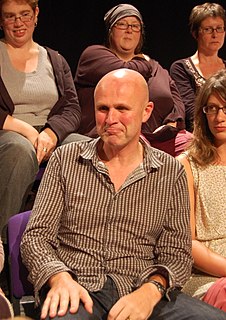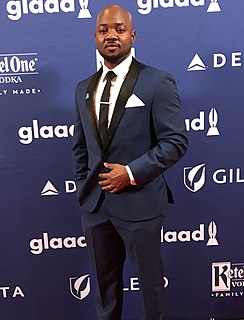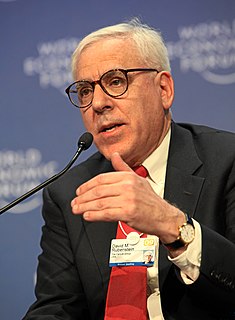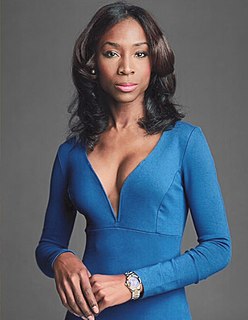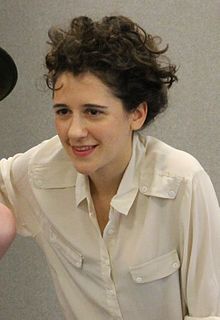A Quote by Hari Nef
I can say with confidence that my trans/transfeminine identity emerges as the most heavily problematized aspect of my lived experience. My transness is not a problem on its own but problematized by a society that reviles it, hates it, fails to understand it - or does not wish to.
Related Quotes
Anarchists believe that we can govern ourselves in the absence of coercive and centralized authority; the underlying premise about human nature (to use an infinitely problematized but necessary term here) is fundamentally positive. And the evidence that in disasters people are really pretty kind, generous, brave, resourceful and creative fed that.
I am transgender, so 'he' is not appropriate and 'she' is problematic. I haven't been one to wage war with society to force people to address me a certain way. I let people make that decision for themselves. I don't identify as a man, so 'he' is silly in a way. Being called 'she' as a trans person, trans in the sense that I'm trans, is to be honoured in an aspect of yourself.
Many in the trans community are fed up with L.G.B.T. organizations that continue to erase trans identity or just give lip service to trans issues. We need our cisgender allies - gay and straight - to treat transgender lives as if they matter, and trans people need multiple seats at the tables in the organizations that say they're interested in L.G.B.T. equality; this absence has been painful since Stonewall.
There's this belief sometimes from people who haven't lived the trans experience that's just like, 'You should tell everyone. You owe it to them.' But the truth is, you don't know how people are going to respond. And many people don't even have the language to talk about what their trans experience is, or what it could be.
The truth is not that the problem is the newsroom does not understand capitalism. The problem is that the front office does not understand journalism. The problem is not that the average reporter does not understand what it is that's necessary to make the payroll, to make the good edifice, to make the thing that he wants. It is that in fact those who control too many of the edifices have actually come to believe that Wall Street has wisdom, and that that wisdom should instruct our business.
One must always say every word with consideration, and should not say what one does not wish to happen. Those who do not understand the value of suggestion walk after their own fate with a whip in their hand, and those who understand its value and control their word and use it rightly, they are a bliss to themselves and a source of happiness to others.
Generally, I start by observing the existing and popular narratives in my social spheres and media, and the pressures I face in my own life experiences. As someone who is "newly" trans, I am constantly thinking about what the dominant narratives are around transness, how my work can push against these narratives, and how it already falls into these traps.
Trans voices are really underrepresented, and trans stories are really underrepresented, and when they are presented, they're often reductive. I was interested in putting a trans person and a trans narrative on stage that didn't fall into cliché, that thought a bit more deeply about the experience of being trans, and how those issues tie into things that we all experience. How we tell the story of our lives, versus what might have actually happened, and how we communicate to our former selves. All of those questions were really interesting to me.



